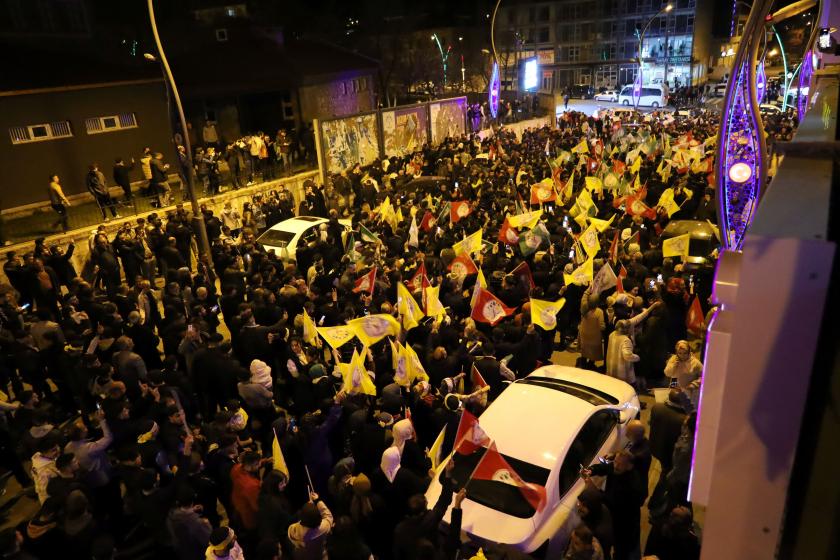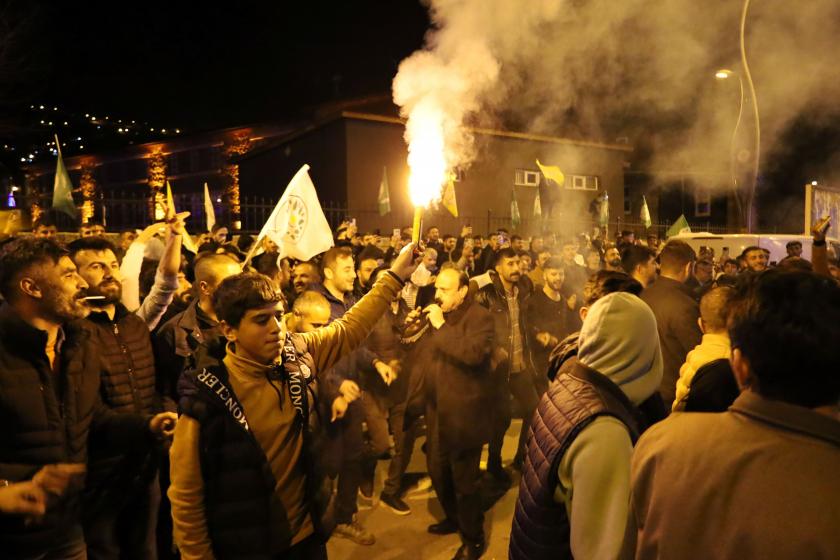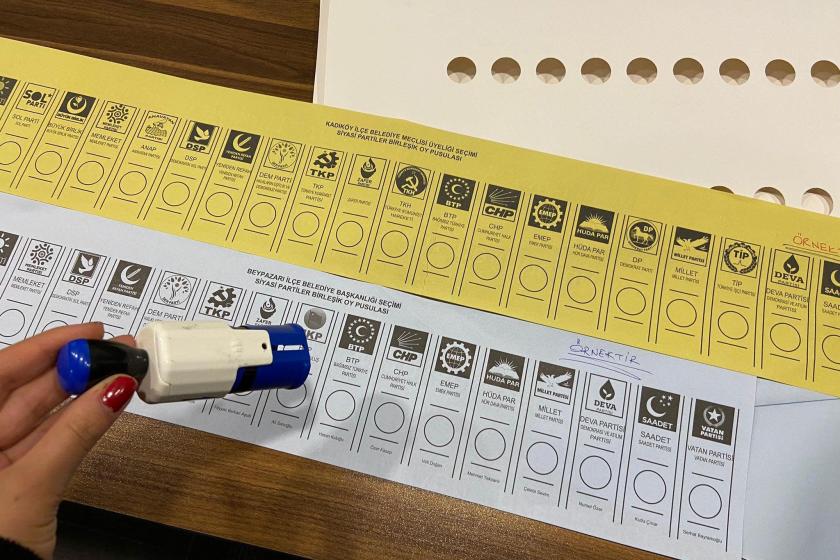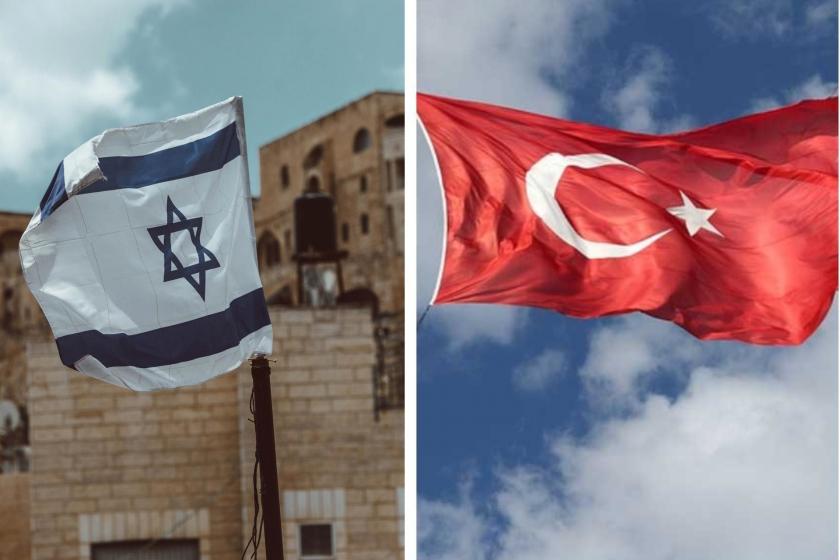The protests in Lebanon, Iraq and Iran are continuing, even if less intensively than a few weeks ago. Although many countries in the region have not (yet) actually started mass street demonstrations, they have been ill at ease for a long time.
There are those who argue that these waves of disquiet are the aftershocks of the Arab Uprising that started in 2011. True, but only up to a point. If today’s protests and mass demonstrations, the reactions in which the walls of fear have undergone great attrition even if not full collapse, had their inception in the Arab Uprising, what was the Arab Uprising’s expiry date?
Every country in the region has its own particular social and economic structure. As such, each country’s particular problems likewise morphed over the years in parallel with local developments and became chronic. The reactions whose first outbursts we witnessed with the Arab Uprising starting in 2011 manifested themselves differently in each country
The destruction in the regions to which rebellion spread also varies in dimension as dictated by internal factors as much as external intervention. For example, it is exceedingly hard to consider Libya to be a country nowadays. Likewise, Syria appears unlikely to rid itself from being the theatre for proxy wars for a long time yet to come.
Hundreds of causes for the Arab Uprising can be listed: oppressive regimes, webs of corruption, state systems having weak/incomplete institutionalization processes, power hubs fuelled by religious-sectarian cracks, ruling circles who see the guarantee for their survival in a splintered social structure, domestic conditions that invite external intervention, unfair income distribution, the mentality that deems muffling the slightest of criticism with such weighty considerations as the survival of the state to be normal, the dependence of the law on personal arbitrariness, structures and systems that have become the protectors of a mafia-like order, etc., etc.
Has this bloodstained period of disquiet lasting almost nine years brought about a solution to the above problems? To a large extent, no. On the contrary, since the bouts of hot conflict have begun to abate, the region has slowly been advancing towards another chaotic period. The basic question remains unanswered: what is to happen next? Will each country that has had a greater or lesser taste of rebellion continue with the old mindsets that are entwined in the chronic problems? Will there be a transition to new, clean, transparent and democratic governments? These, in the end, are the demands of the people. So, who and with which personnel is to do this?
What in the end we are talking about are countries that have to a large extent been governed with a single voice and from a single centre, even if there is not a single party. For an opposition to emerge, develop and become a candidate for power, let alone attain the readiness to deal with gangrenous problems, is not something that can be achieved in a few years.
In countries that have undergone destruction to a greater or lesser extent, far more pressing problems await solution that are capable of overshadowing such expectations as a new political structure, model of government and democracy. A huge blessing for those unwilling to relinquish the power they wield! Perfect conditions under which to insist, “Democracy or stability – chose one”!
Judging from the prevailing atmosphere, there exists no government yet that is dealing with the structural problems that led to such chaos as the Arab Uprising. If there have been oral expressions of intent in this direction, nobody has moved into action. On the other hand, the Arab Uprising has to a large extent subsided, the clashes have ended and external interventions have abated or changed course. Under these circumstances, will the same regimens continue with the pre-2011 balances even if greatly aggravated?
These are certainly the intentions and expectations of the power holders, but the streets and the conditions that are still freshly germinating say otherwise: The Arab Uprising has not ended and we will probably continue to experience fresh uprisings or aftershocks in the decades to come. In fact, without an end to the conditions that triggered the period of uprising, it is virtually inevitable that we will witness new Arab Uprisings.
It is unknown whether this/these new period(s) stretching out ahead of us, their future evolution unfathomable, will bring bloodstained years, but it is clear that the peoples of the region will not be their pre-2011 selves.
There are now on the one hand generations that have been thoroughly radicalized through destruction and chaos, and, on the other, those who see that the walls of fear can be demolished and find courage. We appear to be on the cusp of a period in which topics open up for debate that were not much discussed until 2011 or that brought grief to those who did so. It inspires hope that matters considered taboo until ten years ago are slowly starting to gain traction, not least discussion of the religious arguments that fuel radicalism. This new threshold, where such demands as democracy and human rights are not restricted to slogans and are subjected to rigorous discussion, struggles that are quite alien to the region such as women’s rights are more visible and those who insist that the citizen-state relationship must be rearranged frequently fill the screens, will influence the future of the region.
On the other hand, the refuges that many countries wish to rid themselves of will influence the course of affairs for good or bad. Not all refugees will return to their countries, but the conditions returnees even if small in number will bring into being must not be underestimated. The effect that millions of people capable of interacting with other cultures, speaking several languages and having experienced that another life is possible may be beyond estimation. At the same time, the ghettoization and radicalization process may to the same extent undergo speedy development in tandem with policies towards refugees.
New political currents or even relationships of alliance that the period of uprising has destroyed/engendered may exert a multidimensional effect on everything from states’ fundamental principles to their foreign policy.
It will probably be no easy matter for these hope-inspiring developments that are overshadowed by destruction to grow and take root. In the final analysis, rulers remain in their posts who do not wish to change the prevailing mentality despite as destructive a process as the Arab Uprising, strive to establish the pre-2011 conditions as soon as possible and turn their gaze towards foreign interventions still insistent on not seeing domestic problems. Most probably, a period at least as arduous as the uprising period awaits the region.
(Translated by Tim DRAYTON)



